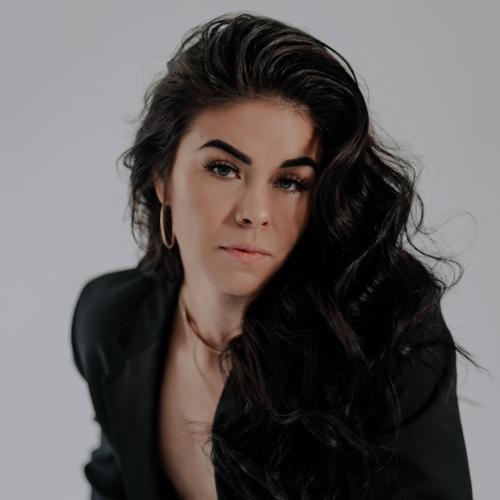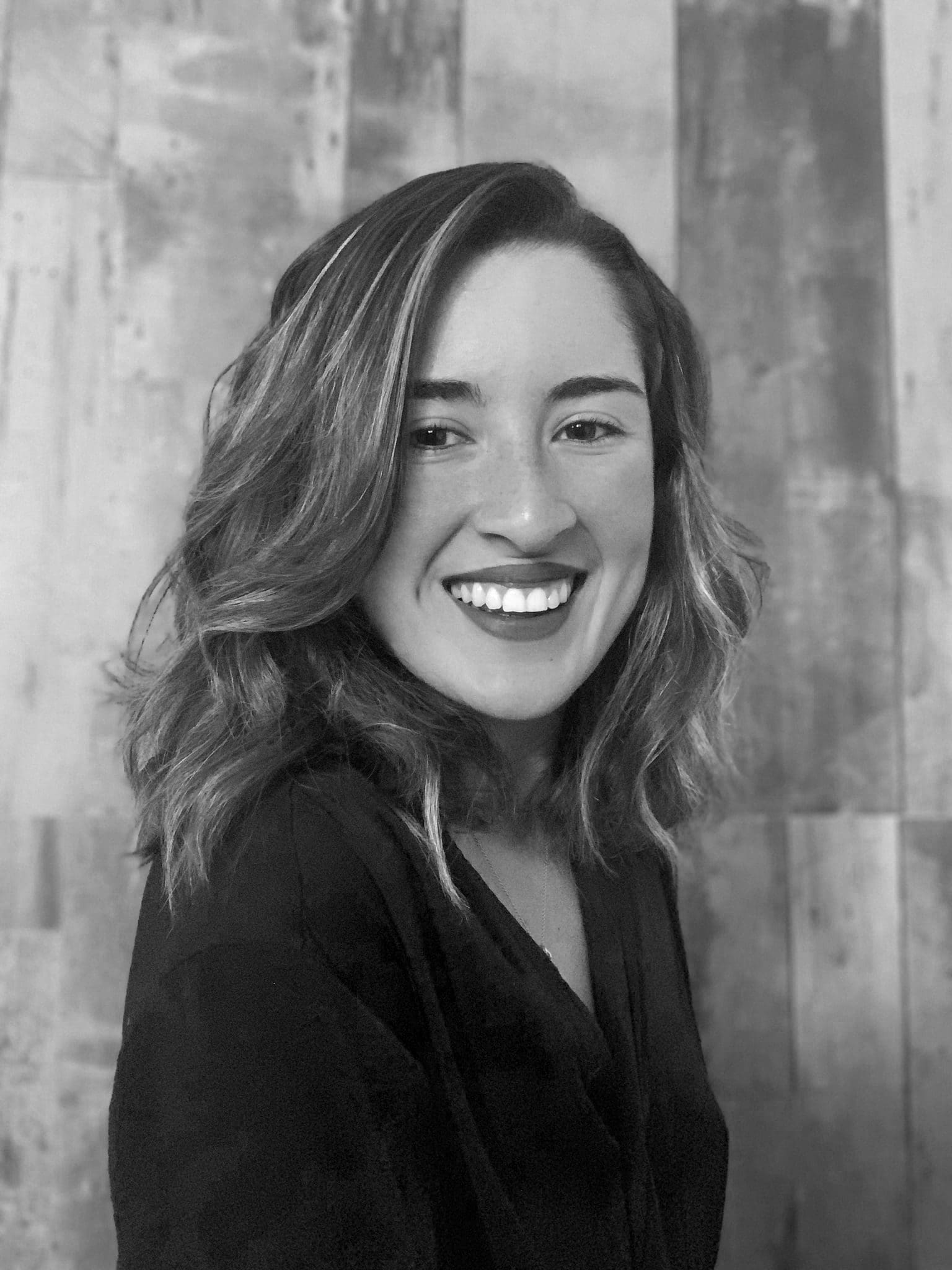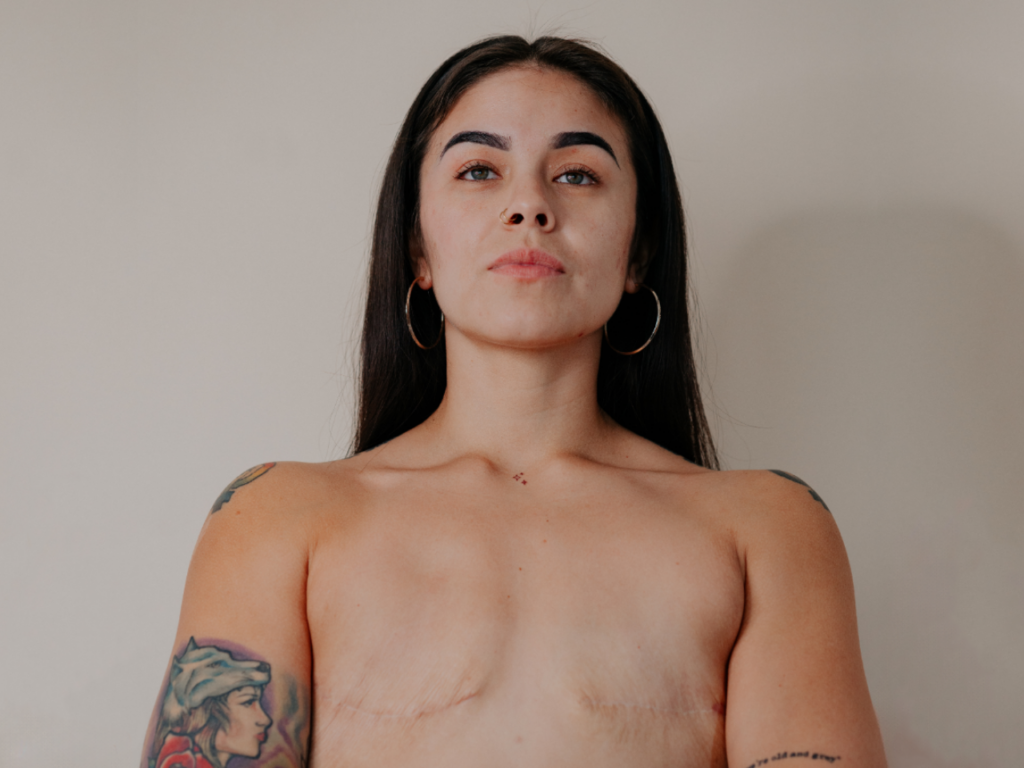Woman undergoes preventative mastectomy: “My self-worth does not rely on appearance”
He never even mentioned aesthetic flat closure – a viable option I might have considered. I felt like he never took into account my unique perspective as a queer, Hispanic-Asian woman. My heart longed for someone to guide me through such a complex process.
- 10 months ago
October 6, 2023

FLORIDA, United States ꟷ Raised in a family with a history of breast cancer, my mother underwent a mastectomy. “Don’t worry about anything until you have children,” they told me. That advice kept me in the dark, unaware of the risks I faced. At 26 years old, cysts and fibroids began to appear, and my concerns escalated. At 27, I decided to take the BRCA gene test [a blood test that identifies mutations in the DNA that increase the risk of breast cancer].
I felt anxious about the needles and the 50 percent chance I would test positive. In my family alone, eight out of 10 of us tested for the mutation – far higher than the typical one-in-400 rate for the general population. Sitting in my car outside my studio, the results came in. I braced myself. When I heard the words – your test is positive – I felt shocked and numb. I sat in silence for several minutes before calling my fiancée to share the devastating news.
Read more health stories at Orato World Media
The prejudice of “going flat”
After I tested positive for the BRCA mutation, the recommended genetic counseling was not sufficient, leaving me to face complex health decisions on my own. I began to plan for my preventative double mastectomy. The urging of my mother and grandmother convinced me to consider breast implants.
Then one day, while scrolling through TikTok, I stumbled across a brave, radiant woman who chose to go flat. Inspired by her confidence, my fiancée and I began to talk realistically about the risk of illness associated with implants. My family fought me, but I stood firm, and one month before my surgery, I made the decision to go flat.
When I told the highly recommended surgeon whom I selected, he practically ignored me – urging me to consider implants. He never even mentioned Aesthetic Flat Closure – a viable option I might have considered. I felt like he never took into account my unique perspective as a queer, Hispanic-Asian woman. My heart longed for someone to guide me through such a complex process.
I soon understood women like me aren’t the only ones who face marginalization in the process of choosing to go flat. Men, non-binary individuals, and the trans community also face ignorance. The way society judges this choice can be quite harsh. My trans brothers and sisters, who already face a world ripe with transphobia, also feel the impact.
Facing flaws in patient-centered care
At the teaching hospital where I prepped for this transformative surgery, I met a young, queer, male surgeon in residence. He would not serve as the attending surgeon for my procedure, but I felt a strong connection to him anyway. The attending surgeon, on the other hand, left me worried.
As we entered pre-op, I made my wishes explicitly clear to everyone: “I want to be as flat as a prepubescent boy.” Moments before the surgery began, the attending surgeon made a comment that filled me with discomfort. “I need to sign your boobs,” he said. “It’s my rockstar moment before going into surgery.” His comments were not okay.
When the surgery ended, I woke up disoriented but quickly asked the nurse to open up the floral binder that covered my chest. My heart sank. The surgeon left me with what looked like A-cup breasts. I felt devastated and misunderstood and began to sob in the recovery room.
Due to COVID-19 restrictions at the time, I recovered alone. My fiancée picked me up after discharge, unable to find words to comfort me. The doctors moved on to another operation and I carried the weight of their absence with me. I felt mutilated and abandoned.
When the attending surgeon who performed the operation called me the next day, he spoke in a condescending tone. You need to wait six months to fully assess the outcome, he told me. From his attitude, I knew immediately, I would never let this man operate on me again.
The challenges of a mastectomy recovery
While recovery proved very manageable, I faced a few challenges. Each of the two areas of my chest that underwent surgery utilized a nightmarish JP drain – a suction device that collects fluid in a closed system without the need for an outside suction machine. In two weeks, one side stopped draining, but the other became blocked and required attention.
Phantom sensations erupted. I felt itching that I could not scratch and I caught myself reaching up to support breasts that were no longer there. Muscle memory played tricks with my mind. Sometimes, I experienced the strange sensation of my nipples hardening, even though they no longer existed.
On top of everything, I experienced “re-sensation.” Sharp, quick, electric picks erupted through my chest as nerves attempted to reconnect. The doctors said it was a good sign of healing, but the pain felt strange and uncomfortable.
The thing that stands out most, though, is the glaring hole in emotional support. I often think, “How invaluable a ‘breast doula’ could have been,” – a mediator between me and my medical time who could accompany me on this vulnerable and confusing journey.
As I continue to adapt to my transformed body, these experiences serve as visceral reminders of just how much I’ve changed.
Breast cancer pre-vivor skyrockets to 200K Followers
Eventually, the resident surgeon at the hospital who I had developed such a bond with, carried out a successful revision surgery to give me the chest I wanted. In time, I took my story to TikTok and something electrifying happened. My following skyrocketed from 200 to 200,000 overnight. It felt exhilarating.
While my content led to brief bans on TikTok and Instagram, in time these platforms amplified my voice, enabling me to reach and inspire thousands. While a wave of hate rolled in, I pushed on, connecting with even more people who said I changed or even saved their lives.
Every time I scroll through my social media feed, I feel a surge of purpose flooding through me. This is my stage, my platform, to shake the world awake about breast cancer, BRCA testing, and choosing aesthetic flat closure after surgery.
My three-year relationship stood strong and stable, but for many like me, the decision to go flat can shake up a relationship. Too often, we face rejection and judgment. To these people, I say, “Your resilience outshines the opinions of others. If someone leaves you for superficial reasons, they weren’t worth your time to begin with.”
When asked how I maintain my confidence, my answer is simple: “My self-worth is not reliant upon my appearance. My heart, personality, and drive to help others amplify my worth.” That is not to say I don’t grapple with body image, but sharing my story and talking to others makes it all worth it.
One in eight people is diagnosed with breast cancer and not one of them should remain in the dark about their choices. We must never feel like outliers when we make decisions about our own bodies. I want to make sure no one feels lost like I did.
















































































































































































